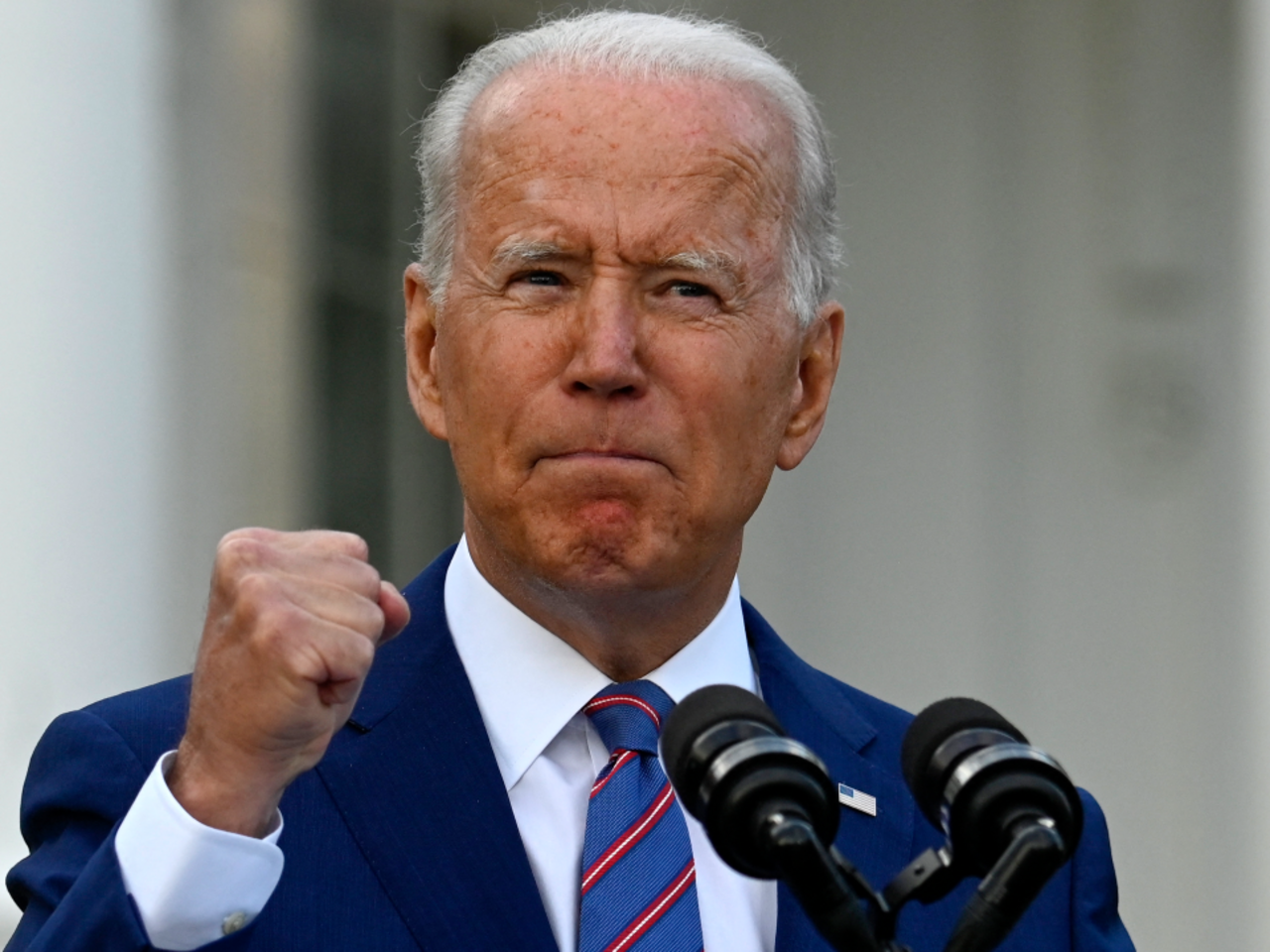By Zhao Minghao (Global Times, 28 December 2021) – Nearly a year into his administration, US President Joe Biden’s promise to “heal” the US in his inaugural address, delivered on January 20, has not been realized. The Capitol riot on January 6, together with a deep divide in the US economy and society, are still lingering in the Biden administration. The 117th US Congress shows an intensified neo-tribalism in the US society. Besides political infightings with Republicans, Biden has to struggle with some members in his own party, the Democratic Party.
If we were to give a grade to the Biden administration, he would get a “B-.” With efforts of the White House and Democratic lawmakers, the American Rescue Plan and the Bipartisan Infrastructure Law were passed, but on a significantly smaller scale compared to Biden’s initial proposals. The Build Back Better framework, even more important to Biden, failed to be passed this year because of opposition from Democratic Senators Joe Manchin and Kyrsten Sinema. Due to this legislative setback, Goldman Sachs cut its US GDP forecast for the first quarter of 2022 to 2 percent from the previous 3 percent.
Despite of Biden’s age of nearly 80, the US president is still ambitious. He set out to be the Franklin D. Roosevelt of the 21st century, promoting the “New New Deal,” ending the damage of neoliberalism, and creating a new cycle of national development in the US.
However, 79-year-old Biden faces a much harsher reality. “The new NPR/PBS NewsHour/Marist poll found that Biden’s approval rating has sunk to 41 percent, a historic low for the president in polls conducted by the groups,” The Hill reported on December 20. And let’s not forget that more than 70 percent of Republican voters still believe the 2020 election was “stolen” by Biden and the Democrats.
Compared with his predecessors, when it comes to the first year in office, Biden’s approval rating deteriorated much faster. The US’ epidemic is surging, supply chains impeded, inflation is rising, oil and gas prices are increasing sharply, and the country is facing a border crisis with Mexico. These issues have further exacerbated the Biden administration’s predicament.
Biden and the Democrats will confront huge challenges in the mid-term elections next year. In this year’s Virginia gubernatorial election, the Republican “political amateur” Glenn Youngkin defeated Biden-backed Democratic candidate Terry McAuliffe. This gubernatorial election is considered an important weather vane for the 2022 congressional midterm elections, and Youngkin’s victory deepened the incredibility of Biden’s ability to govern within the Democratic Party. Moreover, the Progressives believe that the Biden administration is too conservative in terms of raising the minimum wage, reducing student loan debt, strengthening environmental regulation, and addressing climate change.
The Republicans have started to boost their campaign around the 2022 midterm elections, claiming that Biden, like former president Jimmy Carter, will only be a one-term president. House Republican leader Kevin McCarthy and others pledge to take back control of Congress in 2022, while states with Republican legislatures have passed new laws making it harder for constituents to vote in response to the 2020 election. The fierce partisan fight over voting legislation is a mirror showing the deep crisis in American-style democracy.
The US, a 200-year-old democracy, is “closer to civil war than any of us would like to believe,” warns Barbara Walter, a political science professor at the University of California at San Diego, in her new book, How Civil Wars Start.
The end of the Cold War made the US arrogant and therefore blind to the ills of its political system. As the Singaporean political scientist Kishore Mahbubani argued, America is behaving like the Soviet Union. Francis Fukuyama, the political scientist who proposed the ideas of “the end of history,” said that the attractiveness of American institutions and society to people around the world “has been greatly diminished.”
However, a greater danger remains. Three retired US generals wrote jointly in the Washington Post, expressing their concerns about the divide of the country and its influence on the US military, in which there are signs of potential turmoil. Billionaire, Hedge fund founder Ray Dalio predicts there is a 30 percent chance of US civil war in the next 10 years.
Biden sees a deep political divide in the US but is somewhat helpless to do anything about it. Members of Congress are still busy imposing sanctions on what they see as “non-democracies” like China, but they are indifferent to the fact that the US is descending into an “illiberal democracy.” Members of the US Congress are primarily responsible for the constant decline of US democracy, which is obviously beyond Biden’s power to reverse.
The author is a senior research fellow at the Charhar Institute and an adjunct fellow at the Chongyang Institute for Financial Studies at Renmin University of China.


